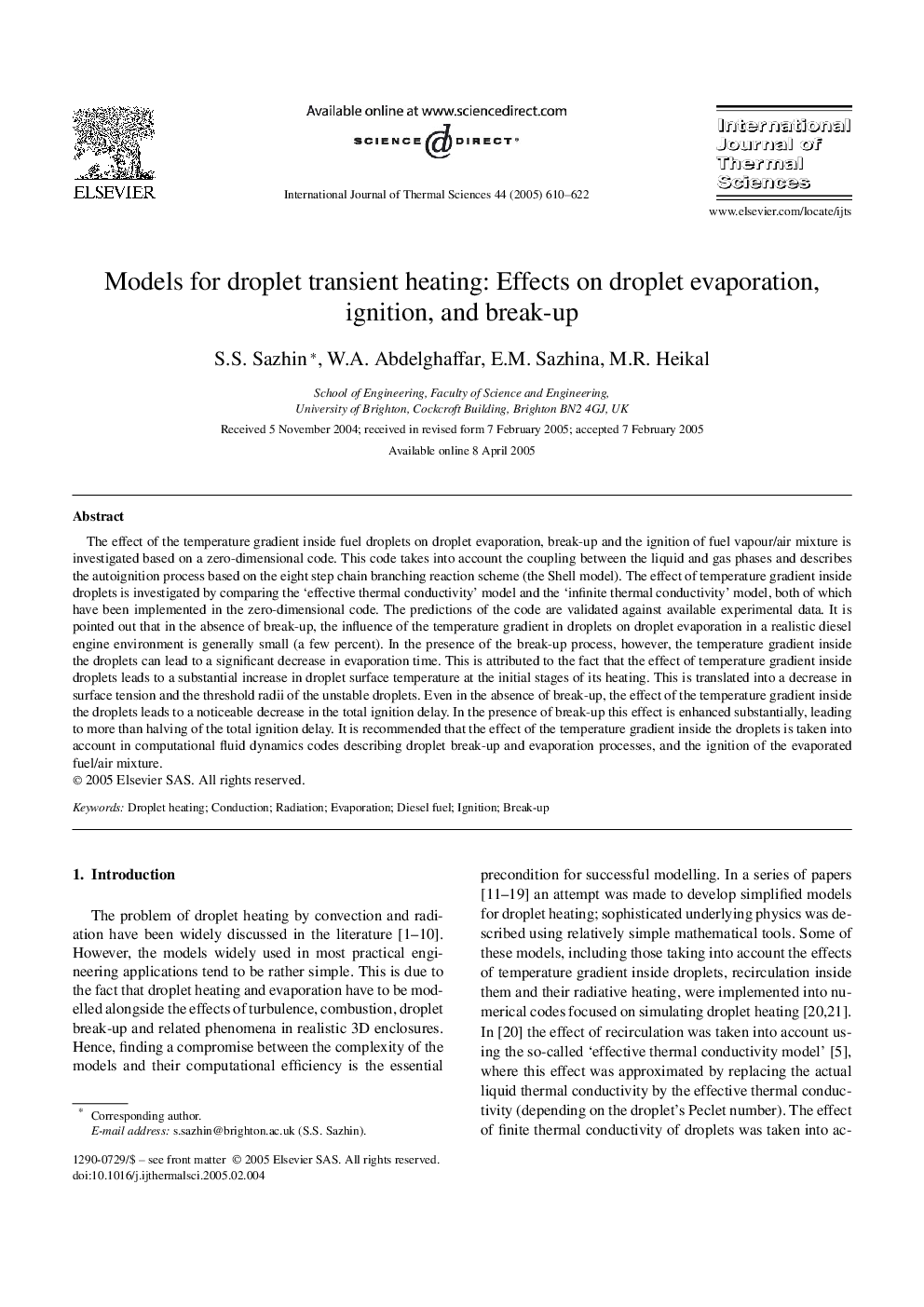| Article ID | Journal | Published Year | Pages | File Type |
|---|---|---|---|---|
| 9692855 | International Journal of Thermal Sciences | 2005 | 13 Pages |
Abstract
The effect of the temperature gradient inside fuel droplets on droplet evaporation, break-up and the ignition of fuel vapour/air mixture is investigated based on a zero-dimensional code. This code takes into account the coupling between the liquid and gas phases and describes the autoignition process based on the eight step chain branching reaction scheme (the Shell model). The effect of temperature gradient inside droplets is investigated by comparing the 'effective thermal conductivity' model and the 'infinite thermal conductivity' model, both of which have been implemented in the zero-dimensional code. The predictions of the code are validated against available experimental data. It is pointed out that in the absence of break-up, the influence of the temperature gradient in droplets on droplet evaporation in a realistic diesel engine environment is generally small (a few percent). In the presence of the break-up process, however, the temperature gradient inside the droplets can lead to a significant decrease in evaporation time. This is attributed to the fact that the effect of temperature gradient inside droplets leads to a substantial increase in droplet surface temperature at the initial stages of its heating. This is translated into a decrease in surface tension and the threshold radii of the unstable droplets. Even in the absence of break-up, the effect of the temperature gradient inside the droplets leads to a noticeable decrease in the total ignition delay. In the presence of break-up this effect is enhanced substantially, leading to more than halving of the total ignition delay. It is recommended that the effect of the temperature gradient inside the droplets is taken into account in computational fluid dynamics codes describing droplet break-up and evaporation processes, and the ignition of the evaporated fuel/air mixture.
Related Topics
Physical Sciences and Engineering
Chemical Engineering
Fluid Flow and Transfer Processes
Authors
S.S. Sazhin, W.A. Abdelghaffar, E.M. Sazhina, M.R. Heikal,
